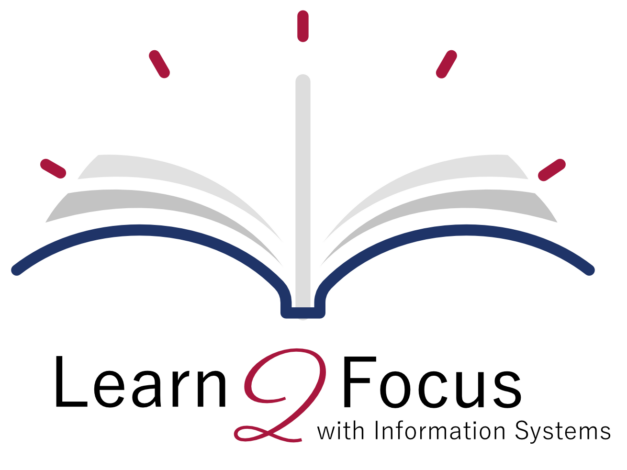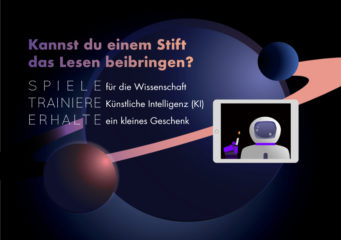Research projects
PRIME – Privacy in the Metaverse

The metaverse is seen as a potential successor of today’s internet. While tech companies are emphasizing the enormous economic potential of the metaverse, it also poses new threats to the privacy of potential users.
In this context, the research project “PRIME – Privacy in the Metaverse” aims to gather knowledge in the current early phase of the development of metaverse platforms in order to enable citizens to engage in an informed discourse about the opportunities and risks of using metaverse platforms for their privacy, self-determination and data protection. The project also aims to develop new methods and design principles to support content creators and service providers on metaverse platforms in protecting the users’ privacy.
The joint project, funded by the German Federal Ministry of Education and Research (BMBF) for 36 months, is being carried out by our research group at FAU in close cooperation with Prof. Dr. Christian Thorun of ConPolicy GmbH in Berlin, Prof. Dr. Louisa Specht-Riemenschneider of the University of Bonn, Prof. Dr. Gerald Spindler of the University of Göttingen. In detail, the project pursues the following focal points:
- Design and evaluation of user interfaces and design principles that enable users of metaverse platforms to effectively exercise their right to privacy and, among other things, adequately support their informed consent, and protect themselves from harassment and assault.
- Development and testing of metrics to evaluate the design of virtual content on metaverse platforms for its impact on user privacy in order to mitigate dark patterns and deceptive designs in the metaverse.
- Research and testing of innovative design and development processes to gather the user opinions on metaverse content with respect to the aforementioned user interfaces and metrics, both using classical methods of usability research as well as methods used in the metaverse itself.
The research project builds on broad public relations and cooperation with regional partners, such as the open innovation lab JOSEPHS in Nuremberg, the XR Hub Bavaria, Games in Bavaria, or Journee Technologies GmbH.

Funding reference: 16KIS1895
Duration: July 1, 2023 – June 31, 2026
Further information:
– https://privacy-metaverse.de
– https://www.forschung-it-Sicherheit-kommunikationssysteme.de/projekte/prime
Team: Jeanine Kirchner-Krath, Runjie Xie

eCo-CreAItion: Exploring Human-AI Co-Creativity for Sustainability Innovations
Digitalization is influencing all areas of social and economic life, and artificial intelligence (AI), in particular, as a disruptive technology, is fundamentally changing how people work with technology. At the same time, we are facing critical societal challenges that need to be solved with new ideas and a spirit of innovation. The integration of AI into creative processes, known as human-AI co-creativity, promises to open up new avenues of innovation in order to develop solutions to pressing challenges.
The “eCo-CreAItion” research project addresses this potential and investigates how human-AI co-creativity can succeed for sustainability innovations in the context of developing sustainable business models. Psychological, ethical and technological perspectives on the co-creative process will be examined, motivational designs for co-creativity processes will be developed and evaluated on this basis, and finally, the effect of such co-creative processes on the emergence of sustainability innovations will be investigated. In this way, the project expects technologically, economically and socially relevant results. From a technological perspective, new insights will be generated into the roles of AI systems and how human-AI collaboration processes can be designed to enable genuine creative partnerships in which AI not only assists as a digital support system but also actively participates in the creative process. From an economic point of view, the project develops important foundations for successful human-AI collaboration in the corporate context by identifying psychological and ethical factors that are crucial for a successful co-creation process and, building on this, developing new motivational design options for human-AI collaboration that can also be transferred beyond the project context to human-AI collaboration in organizations. From a societal perspective, the project provides a first blueprint to show how AI can take creative processes to a new level and thus drive innovation processes to solve societal challenges.
Project objectives:
- Analysis of psychological, ethical, and technological factors influencing human-AI co-creative processes in the context of sustainable business model ideation
- Exploration of motivational and ethical designs to enhance human-AI co-creativity
- Examination of how human-AI co-creativity can drive sustainability innovations
- Exchange with practice and the public through participatory science communication
The project is funded by the Bavarian Research Institute for Digital Transformation (bidt) in the course of the „Graduate Center für Postdocs“ program.
Duration: 01.01.2025 – 31.12.2028
Team: Jeanine Kirchner-Krath

Discovering Gaming and Gameful Content Creation in Mobility
In cooperation with CARIAD, we are exploring in-car gaming and the art of creating gameful content within the automotive industry. It’s a unique blend of cutting-edge research and real-world application that promises to redefine how we experience cars. Based on our gamification and gaming expertise and the technological prowess of the CARIAD, we’re diving deep into the world of in-car gaming. We’re not just playing games; we’re shaping the future of mobility and entertainment. Our goal is to bring the excitement of gaming into mobility, creating immersive experiences that blend seamlessly with your daily commute. Imagine driving becoming more than just a chore – it becomes an adventure, a challenge, and a source of fun.
Project objectives:
- Design and development of gameful content creation solutions
- Explore factors influencing the in-car gaming experience
- Derivation of design principles
Team: Johanna Eiting, Jonathan Stief

Learn2Focus with Information Systems: Exploring the Potential of Motivational Information Systems against Procrastination in Academic Contexts
Procrastination – the deliberate postponement of necessary or important tasks knowing that this will have negative consequences in the future – is a widespread phenomenon in the academic context, affecting up to 50-70% of all students and researchers. In addition to obvious effects on academic performance, procrastination is also associated with serious consequences for mental health of those affected. The research project “Learn2Focus with Information Systems” aims to investigate the potential of motivational information systems as a novel and accessible intervention to support self-organized work in academic contexts.
Project objectives:
- Investigating the effects of motivational information systems to combat procrastination among students
- Deriving design recommendations for the design of motivational information systems against procrastination in the academic context
The project is funded by FAU’s scholarship program for the “Realization of Equal Opportunities for Women in Research and Teaching” (FFL).
Duration: September 1, 2023 – August 31, 2024
Team: Jeanine Kirchner-Krath
Design and evaluation of gamification solutions to improve football training
In cooperation with adidas, we want to improve training and performance diagnostics in football through innovative gamification approaches. For this, we explore the impact of different gamification features using an existing adidas platform and wearable devices.
Project objectives:
- Design and development of different gamification features
- Evaluation of developed gamification features with regard to sociopsychological dynamics in the team and effects on the behavior of the football players
- Derive design recommendations and principles for gamification in team sports based on the results of field experiments
Team: Sandra Birnstiel

FontanQuest: A study on the potential of game-based training programs for children with Fontan circulation
In collaboration with the University Hospital Erlangen, we are investigating the psychological and behavioural outcomes of using game-based high-intensity interval training programs in children with Fontan circulation. The project is supported by the “Sonderfonds für wissenschaftliche Arbeiten an der FAU” by the city of Nuremberg and conducted together with PD Dr. Dr. med. Isabelle Schöffl from the pediatric cardiology department at the University Hospital Erlangen.
Completed projects
More details on our previous research will follow soon. In the meantime, please see our publications.






